I believe in America, America made my fortune. The first sentence uttered in The Godfather is the filmic equivalent of that Many years later, facing the firing squad, Colonel Aureliano Buendía was to recall that remote afternoon when his father took him to meet the ice, which opened Gabriel García Márquez‘s One Hundred Years of Solitude. Just by reading it, any self-respecting film buff can close his eyes and see himself in Vito Corleone‘s office, in front of him, an honest undertaker called Bonasera, telling the boss of one of New York’s five mafia families how his daughter has been brutally beaten up by some kids who tried to rape her. He asks for justice, a justice that the country he believes in has not been able to give him, but he seeks revenge. She has come to the right place, but she is neither asking for it properly, nor will it come for free.
The Godfather is a film of epic proportions both in its portrayal of a family and in its canvas of the USA, both of the period it depicts, the ten years after the end of World War II, and of the era in which it was made, the early 1970s. This film is one of the most significant of that generation that took Hollywood by storm, which the critic and writer Peter Biskind called the generation of quiet bikers and wild bulls.
In 1972, with Nixon in power, the turbulent end of the 1960s still lingering and the Vietnam War increasingly under fire, America was beginning to look at its navel for the first time and what it saw was nothing like the idyllic American dream, America, really USA, was ceasing to believe in itself. When the office they thought most sacred, that of president, was occupied by a guy with morals not unlike those of a gangster, it was time to see that the idyllic images of the 1950s were only masking the true reality.
Francis Ford Coppola elevated a fairly ordinary novel to Shakespearian heights, his screenplay, written with the author of that novel, Mario Puzo, is a true genius and with just the first scene, that of Connie’s wedding, we can already know the main characters perfectly well as if we had seen five seasons of a series about them, something that would surely have been extended had it been made today.
We have Vito Corleone (Marlon Brando), an old school mobster, that means he steals and kills but with a code, as he explains to Bonasera he doesn’t kill for money, but for respect, power and influence (or so he wants to believe), his dream has always been to stop being a puppet and pull the strings himself, something really difficult being an Italian immigrant in a country where the strings are pulled by the group that created the country, that is the white Anglo-Saxon Protestants.
His world is built around two families of which he is the father and godfather, the absolute boss. One is the famiglia, the mafia network he runs together with his friends from his youth, Clemenza and Tessio and his sons, mainly Santino/Sonny, his firstborn, called to be his successor, and his adopted son Tom Hagen, his faithful consigliere, the other is his carnal family and is far above the other in his regard, in the famiglia anyone can betray you, it’s not personal, it’s business, but the carnal family is sacred, his wife, Carmela, and his five sons, if you count Hagen (Robert Duvall), Santino “Sonny” Corleone (James Caan), Frederico “Fredo” Corleone (John Cazale), Constanzia “Connie” Corleone (Talia Shire) and Michael Corleone (Al Pacino), his father’s rebellious but favourite son.
We have Sonny, the eldest son and heir, a womanising and violent man, unable to contain his instincts, and we know that his behaviour and infidelities are not to Vito’s liking. We know that the family’s most complicated matters are dealt with by Tom Hagen, Vito’s adopted brother and consigliere, and also that Fredo is weak and not very self-confident, but that he has a good relationship with Michael. About Michael, the real protagonist of the film over Vito, we can already guess a lot of things. The third son has just returned, as a hero, from World War II and is out of his father’s business, he is aware of who Vito and his family are but it is clear to him that he is not going to be part of it. Michael Corleone is smart and shrewd, but, like Bonasera, he believes in America. He loves and respects his father but does not want to be like him.
With this scene alone we can consider The Godfather a masterpiece, and we haven’t even mentioned Luca Brasi, nor Johnny Fontaine/Frank Sinatra, nor the temperamental Connie, nor Michael’s young girlfriend Kay. Coppola and Puzo make the presentation of characters a master class. Then the film will consolidate all expectations. Vito suffers an assassination attempt and is seriously wounded, circumstances take their toll on Michael and he ends up having to step forward and take over his father’s business. His transformation will be gradual but irreversible, he will think he is taking control of his life but, deep down, he is just another puppet of destiny. On his way to the top he will lose his convictions and his soul. His personal justification will become clear in this conversation with his eventual wife, Kay:
– My father is a powerful man and like so many powerful men, senators, presidents, he is responsible for many others.
– Michael! Don’t be naive. Senators and presidents don’t kill anyone.
– Kay, who’s naive now?
It says a lot about Michael’s cynicism, but also about the reality of the US, a country that at the time The Godfather was made and released, 1972, was presided over by Richard Nixon and had the Watergate scandal waiting just around the corner.
Later father and son will have a pivotal conversation, a scene that every aspiring actor should watch in detail, Al Pacino and Marlon Brando demonstrate their greatness face to face, their two characters, Michael and Vito, have failed in their expectations, Vito has lost a son and Michael has had to get involved, fully involved, in his father’s business, but, still, they have each other.
One believed in family above all else, and for his favourite he had wanted a life away from the dangers involved in the other family, the criminal one, Michael, the only son he gave an American name to, was going to pull strings without needing to get his hands dirty, he was going to be a senator or governor, he was going to belong to the country’s elite, he was never again going to be shunned in public, like all those politicians and judges he has on his payroll but with whom he can’t mix. Michael, for his part, believed in America, but now he knows it is as corrupt as his family, he has taken the easy way out, not to change things, but to take advantage of them. He has a plan, to legalise all the crime family businesses and live like his father with his family and children. But this is not the 1920s and 30s, nor is his wife a Sicilian woman who wants nothing to do with his business (something Michael tries to do but it backfires, shattering a part of himself, when his young wife is murdered), nor does Michael have a code like his father, which will lead him to cross boundaries that Vito would never have crossed. After Vito’s death, he will not hesitate to kill his sister’s husband, Carlo. After his mother’s death, he will cross an even more sacred line…
Pero eso ya pertenece a El padrino II, así que volvamos a esta maravilla, hablar sobre las increíbles interpretaciones, la magistral dirección, la maravillosa música de Nino Rota, la precisa puesta en escena o la recordada fotografía de Gordon Willis, en una película perfecta está de más. El padrino lo es. Aun así me gustaría destacar esos montajes paralelos en los que pasan varias cosas a la vez, para incrementar la tensión. La película tiene dos maravillosos ejemplos, el primero mezcla la muerte de Luca Brasi, el intento de asesinato de Vito, el secuestro de Tom Hagen y la cita de Michael y Kay, que termina ya con la noticia del atentado contra Vito en primera plana de los periódicos.
But that already belongs to The Godfather II, so let’s go back to this marvel, to talk about the incredible performances, the masterful direction, the wonderful music by Nino Rota, the precise staging or the remembered photography by Gordon Willis, in a perfect film is one too many. The Godfather is. Even so, I would like to point out those parallel editing in which several things happen at the same time, in order to increase the tension. The film has two wonderful examples, the first mixes the death of Luca Brasi, the attempted assassination of Vito, the kidnapping of Tom Hagen and the meeting of Michael and Kay, which ends with the news of the attempt on Vito’s life on the front page of the newspapers.
The second is the famous scene in which Michael settles the score against all the enemies of the Corleone family, Barzini, Phillip Battaglia, Moe Greene and the other bosses of the five mafia families. Then comes a death that will have a scene of its own, that of Connie’s husband, Carlo, who has just become the godfather of her son. As his sister will tell him in the last scene, he has become a cold-blooded bastard, something that the film makes clear when he doesn’t even tremble when he has to defend his father from hired killers, lighting the lighter of the trembling pastry chef, or when he has to pull the trigger at point-blank range against Solozzo and corrupt police captain McCluskey – a Sterling Hayden who hails from old Hollywood and can rival Brando himself when it comes to appearing in masterpieces (The Asphalt Jungle, The Killing, Johnny Guitar, Dr. Strangelove or: How I Learned to Stop Worrying and Love the Bomb…, and who, after his appearance here, also filmed The Long Goodbye with Robert Altman and Novecento with Bernardo Bertolucci).
By the end, we have seen Michael’s gradual transformation from World War II hero to ruthless capo. In the last scene, Kay, the wonderful Diane Keaton, will ask her husband if he has killed Carlo. After making it clear that this is the last time he talks to her about “his business” she will lie to him on the spot, Kay (the representation of the family) will leave the room and Michael Corleone will begin to receive the blessings of his underlings, he is the new Don, the new godfather, but his family will not accompany him on this journey.
Just writing about it makes me get excited and we are talking about one of my three or four favourite films of all time. And yes, to say at this point that The Godfather is your favourite film is one of the biggest clichés in the world, on a par with saying that the Beatles are your favourite band or that your favourite Spanish-language book of the 20th century is One Hundred Years of Solitude. They are clichés, because they are the obvious answers, but here they are written by such an uncool guy that I would give them all three, even though I would prefer to put other names that only I knew, so that it wouldn’t be so easy and wouldn’t seem so absolutely ordinary. But what can you do, if you want me to change my mind, you’ll have to make me an offer I can’t refuse…

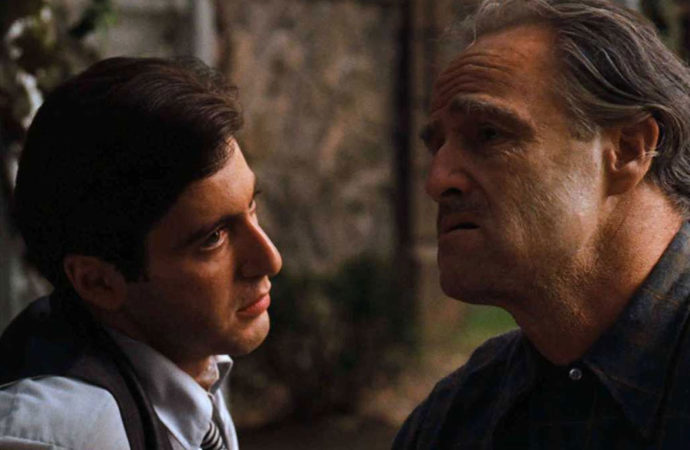
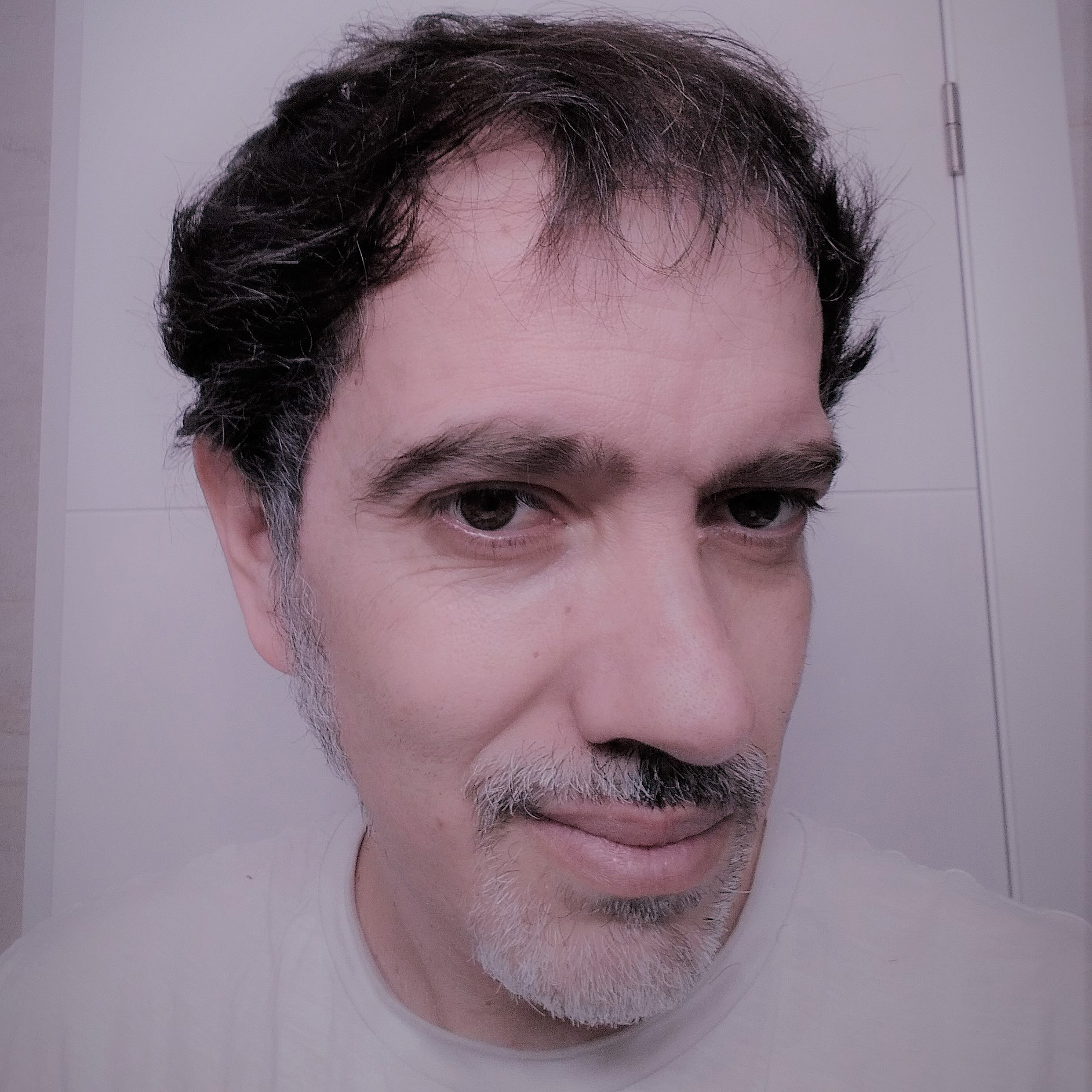

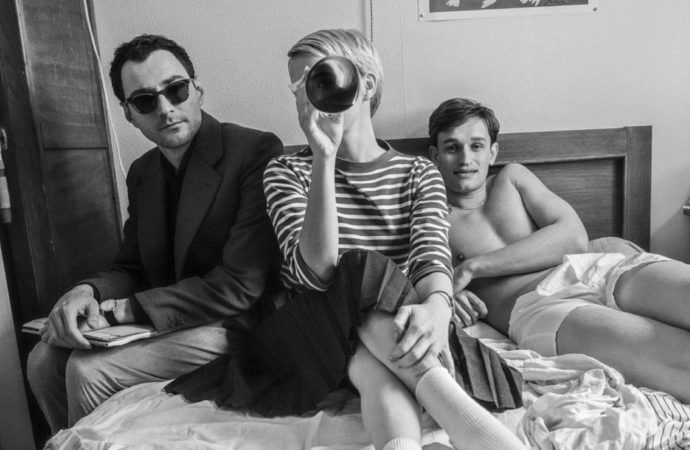
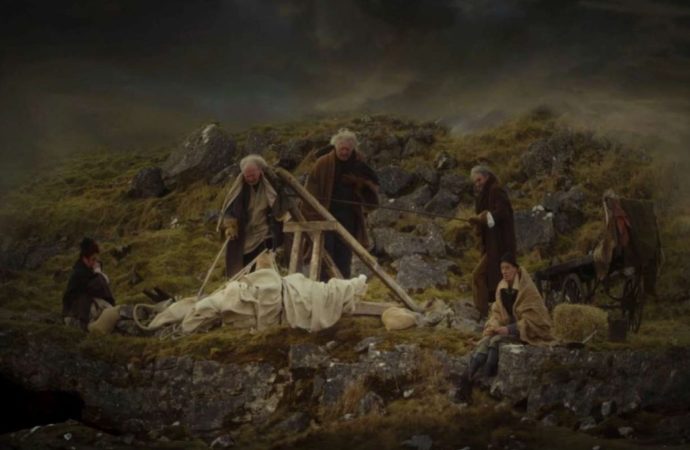
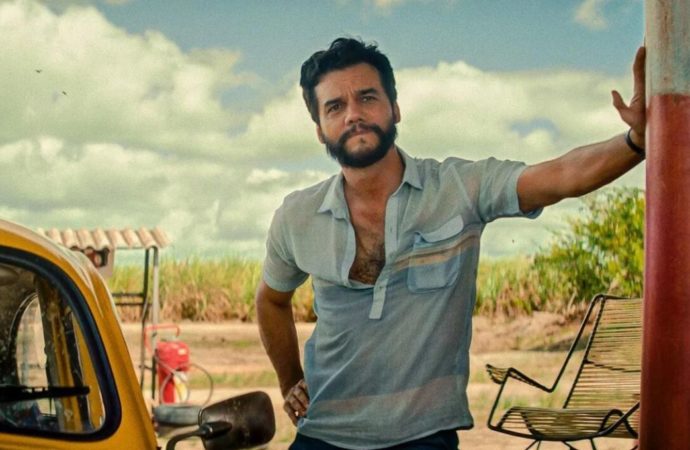
No one has posted any comments yet. Be the first person!